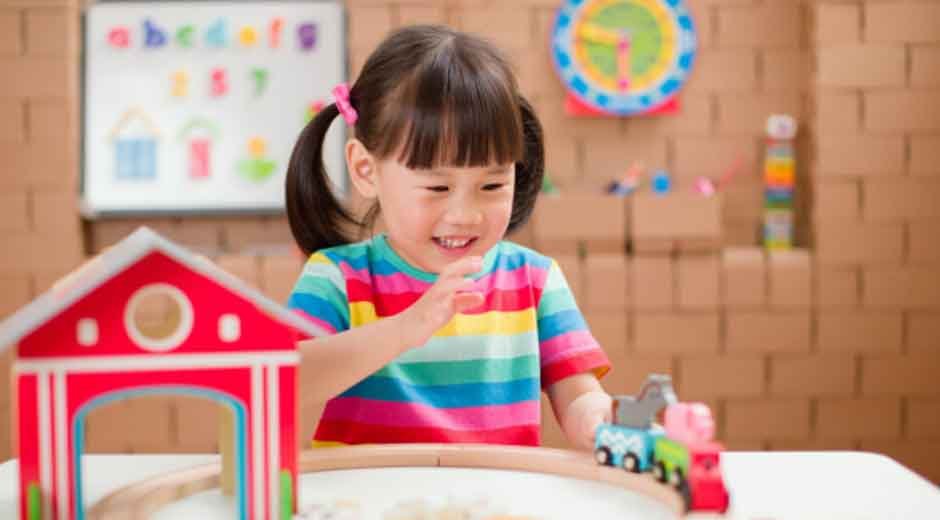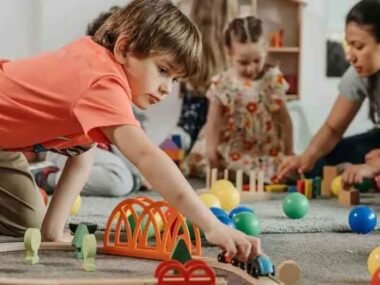Homeschooling a toddler can be a rewarding and exciting experience. At this age, children are curious and eager to learn. As a parent, you have the chance to guide them closely and create a strong foundation for their education.
However, homeschooling a toddler also comes with unique challenges. It requires patience, creativity, and a good plan. This article will help you understand the key factors to consider before you begin homeschooling your toddler.
Understand Your Toddler’s Learning Style
Every child learns differently. Some toddlers learn best through movement, while others prefer listening or watching. It’s important to pay attention to how your child responds to different activities. Do they enjoy singing songs? Do they love playing with blocks or drawing?
For example, if your toddler enjoys music, you can use songs to teach them the alphabet or numbers. If they enjoy building, use blocks to practice counting and shapes. These clues will help you shape a learning experience that fits your child’s needs. When you understand their learning style, you can make homeschooling more fun and effective.
Create a Routine
Toddlers thrive on routine. A clear schedule helps them know what to expect each day. This doesn’t mean you need a strict plan. A flexible routine is enough. For example, you can start the day with reading time, followed by a short learning activity, then snack and play.
It helps to include a mix of quiet time and active time. Reading, drawing, and puzzles are great for calm moments. Outdoor play, dancing, or building with blocks gives them a chance to move and explore. Keeping a regular pattern gives your toddler comfort and security. It also helps reduce tantrums and keeps them focused.
Set Up a Learning Space
Having a dedicated learning area is helpful. It doesn’t need to be a full classroom. A corner in the living room or kitchen with a small table, chair, and shelves can work well. Make sure the area is quiet and free from distractions. Keep learning materials within reach so your toddler can explore freely.
Choose child-sized furniture to make the space feel special for them. You might include bins for books, puzzles, and toys. Labeling storage boxes with pictures can help your child learn organization too.
Choose the Right Materials
Toddlers learn through play and exploration. Pick materials that are age-appropriate and safe. Books with colorful pictures, puzzles, blocks, and art supplies are great choices. Avoid overwhelming your child with too many options. Rotate toys and learning tools every few weeks to keep things fresh.
You can also create homemade learning tools. Use bottle caps to teach colors, or make matching games with printed pictures. Reuse cardboard boxes for art projects or pretend play.
Focus on Life Skills
Homeschooling is more than teaching letters and numbers. At this age, life skills are just as important. Let your toddler help with cooking, cleaning, and dressing. These daily activities teach them responsibility and independence.
You can teach sorting by asking your toddler to match socks or sort colored blocks. Cooking together teaches measuring, stirring, and counting. Letting them wipe tables or water plants helps them feel capable and valued.
Encourage Play-Based Learning
Play is the most natural way for toddlers to learn. Through play, they practice problem-solving, build language, and develop social skills. Use games, pretend play, and outdoor time as part of your homeschool day.
For example, set up a pretend grocery store. Let your child “shop” for items and talk about prices, colors, or quantities. Build a blanket fort and turn it into a reading nook. Make nature walks into scavenger hunts for leaves, rocks, and flowers.
Use a Gentle Approach
Toddlers are still very young and full of emotions. Homeschooling should not feel like a strict classroom. Be gentle and understanding. If your toddler gets tired or upset, take a break.
Some days may not go as planned-and that’s okay. If your toddler refuses an activity, it’s fine to skip it or come back later. Focus on building a love for learning instead of checking off lessons. Celebrate small wins and be patient.
Include Social Interaction
While homeschooling offers many benefits, toddlers also need time to play with other children. Look for local playgroups, story times at the library, or parent-child classes. Even short visits to the park can help your child learn to share, take turns, and make friends.
You can also organize simple playdates with other homeschooling families. These interactions help toddlers develop communication, empathy, and cooperation.
If you’re in a remote area, try online story sessions or virtual playdates with family. Social skills are a big part of early learning and should not be overlooked.
Follow a Balanced Curriculum
At this stage, a formal curriculum is not always necessary, but it helps to have a simple plan. Focus on early literacy, numbers, motor skills, and social-emotional learning.
Many parents like to use a Montessori toddler curriculum because it encourages independence and hands-on learning. Montessori materials are designed to help children learn by doing, which fits well with how toddlers naturally explore the world.
Whatever method you choose, keep it simple. Use themes like animals, seasons, or colors to organize activities. Focus on progress, not perfection. The goal is to gently introduce your toddler to learning and help them enjoy the process.
Observe and Adjust
One of the biggest advantages of homeschooling is flexibility. You can change your approach whenever needed. Watch your child closely. Are they enjoying the activities? Are they learning new things?
If your toddler gets bored or frustrated, try a new method. You might need to shorten an activity or add more playtime. It’s okay to experiment.
Keep a notebook to jot down what works and what doesn’t. This will help you plan better and track your child’s growth. As your toddler grows, their needs will change. Stay open to trying new ideas and adapting your plan.
All About Homeschooling Your Toddler
Homeschooling your toddler can be a beautiful way to bond and support their early development. By understanding your child’s learning style, setting up a routine, and using play-based activities, you can create a joyful learning environment.
Remember to stay flexible, be patient, and enjoy the process. With love, attention, and the right tools, you can give your toddler a strong and happy start to their educational journey. Every day is a new opportunity to learn and grow-together.
Looking for more tips and ideas? We’ve got you covered. Check out some of our other posts now.










